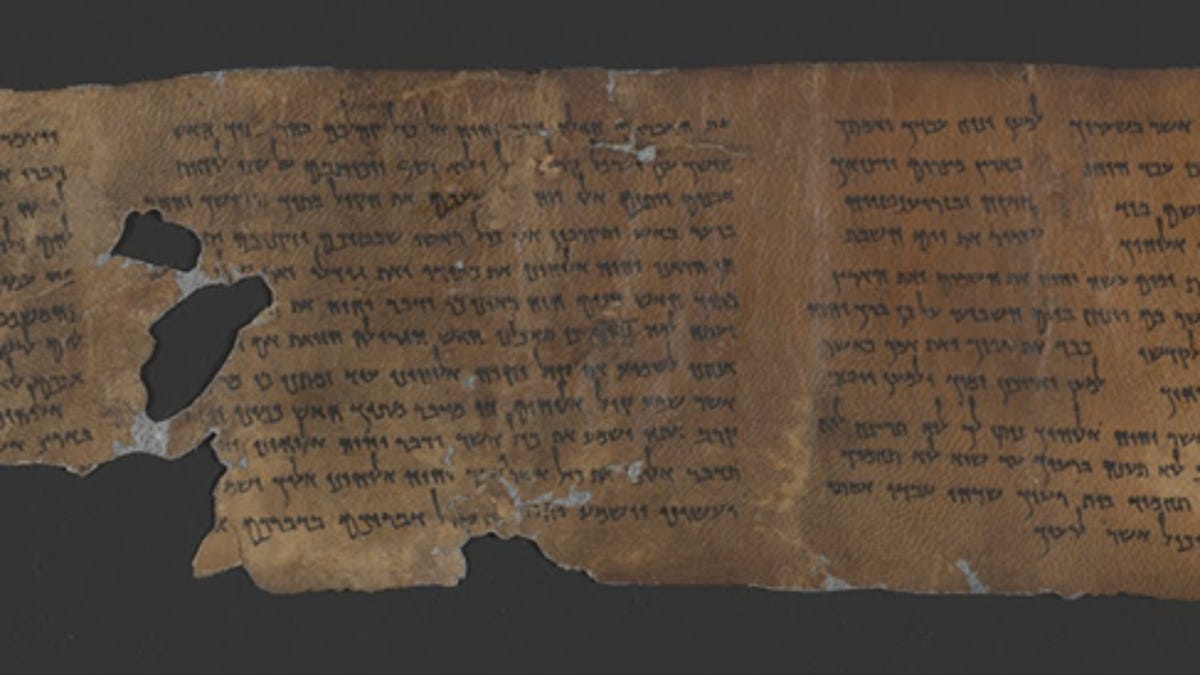View a 2,000-year-old scroll of the Ten Commandments online
Google's latest online archive of historical documents includes the earliest known scroll with the Ten Commandments.

Google is once again offering a glimpse into ancient history with online images of rare scrolls dating back more than 2,000 years.
Courtesy of Google, in collaboration with the Israel Antiquities Authority, the new Leon Levy Dead Sea Scrolls Digital Library is now home to detailed digitized photographs of thousands of biblical and non-biblical manuscripts. These ancient scrolls were discovered in remote caves near the Dead Sea between 1947 and 1956.
Among them, the scroll of the Ten Commandments may be one of the most fascinating. Dating back to sometime between 30 B.C. and 1 B.C., the damaged yet still readable document in Hebrew is one of the earliest known copies of the Ten Commandments.
Other biblical scrolls include a copy of a section from the book of Genesis dated between 100 B.C. and 1 B.C., a Psalms document dated between 1 A.D. and 68 A.D., and a fragment from the book of Leviticus dated between 1 A.D. and 50 A.D.
You can browse among the various high-resolution featured scrolls or search for specific documents by discovery site, language, or content. You can zoom in to each manuscript to view the details up close and move your mouse from one section to another.
The Leon Levy Dead Sea Scrolls project is devoted to preserving historical documents for future generations.
Each fragment of the manuscripts is imaged separately through a process that captures not just the text but also the texture of the document. The process can even reveal characters that have faded and are no longer visible to the naked eye.
Google has played its own vital role in the effort by bringing these ancient documents to the Internet for anyone to see. Last year, the search giant set up a similar project that first brought some of the Dead Sea Scrolls to life online.

